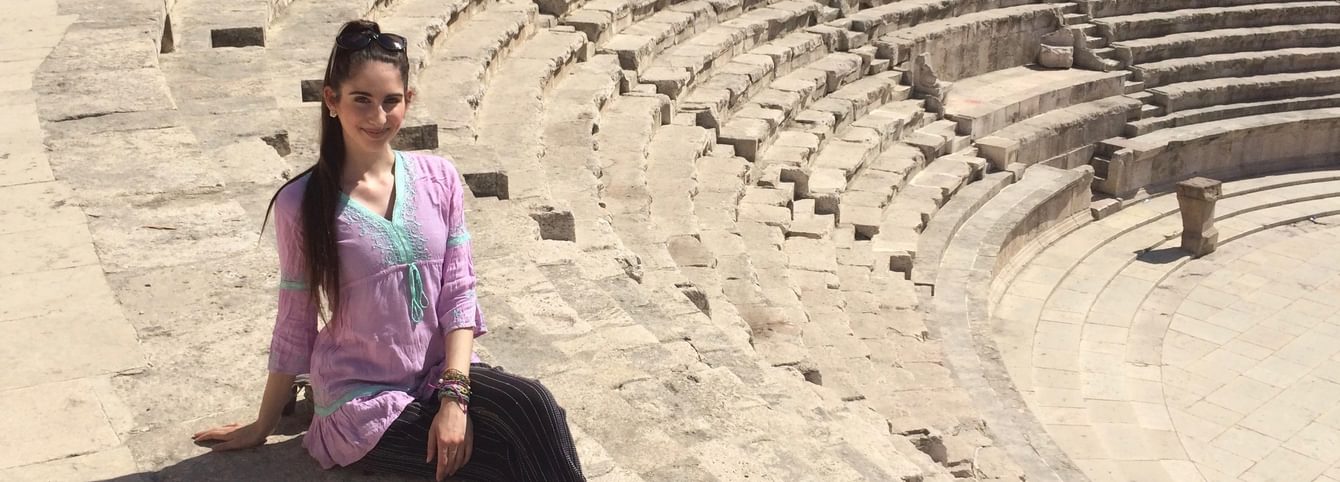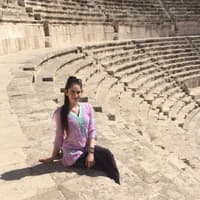Nilaya Knafo
Nilaya Knafo is an alumna of the 2017 CLS Arabic program in Amman, Jordan. A 2019 graduate of American University with a bachelor’s degree in international relations, Nilaya focused her studies on foreign policy in the Middle East and North Africa. She now works as a Senior Program Assistant at the United States Institute of Peace.
“There are so many positive and meaningful impacts that learning a language can have on you as well as the people around you.”
Nilaya’s grandparents, who had emigrated from Morocco where they lived as Jewish minorities, inspired her from a young age to learn about coexistence of religious groups in Arab countries throughout history, and gave her a desire to learn Arabic. Nilaya was no stranger to language study, speaking French at home, studying Hebrew and Spanish throughout childhood, and participating in the NSLI-Y Program in Tajikistan as a high school student, but she didn’t have access to Arabic classes in her hometown of Allentown, PA.
“Learning Arabic and being able to connect with people has been such a valuable experience and so personal for me because it’s a way to connect with my family heritage.”
Beginning in college, Nilaya was eager to study Arabic and to apply for the CLS Program, which she had heard about through interacting with CLS Persian participants in Tajikistan while she was there on the NSLI-Y Program. Nilaya says that participation in the CLS Program opened many doors with regards to language and solidified her passion for a career dedicated to service and peacebuilding. The credits she earned on the CLS Program also enabled her to graduate from college a year early, and to focus more of her time on independent study of religious minorities in the MENA region when she returned from the program.
In her current role at the United States Institute of Peace, Nilaya is able to continue using her Arabic language and the cultural knowledge she gained from the CLS Program in her work focusing on dialogue facilitation and conflict resolution with youth leaders and other peacekeeping programs.
Of her time on the CLS Program, Nilaya particularly cherishes the relationships she built with her language partners and teachers, with whom she was able to share meaningful conversations about every aspect of cultural differences and similarities. Of her time on the NSLI-Y Program Nilaya says, “Tajikistan was such a different experience for me because I was the first American so many people met there, which was amazing, but also made me more self-aware, and prepared me for my time in Jordan.”
“In Tajikistan, people say, ‘if you have language, you have the world,’ and I think that rings true in so many ways…because it gives you the opportunity to connect with people on a more personal level while also creating opportunities for building trust and learning about the different facets and cultural intricacies of a country you can’t access by simply traveling or studying on your own.”



